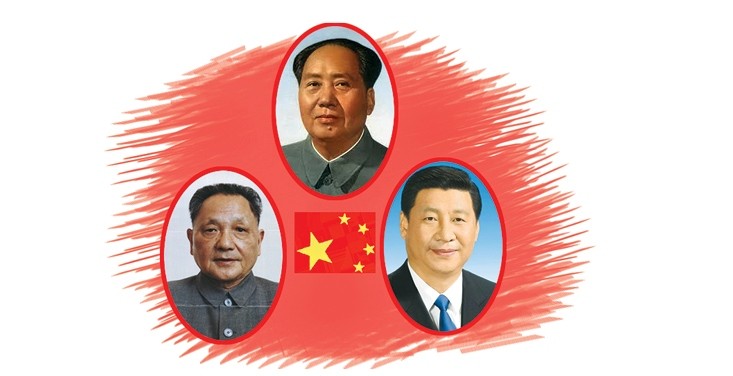PRC’s 70th anniversary marks stories of success, transformation

Ritu Raj Subedi
Kathmandu, Oct 1: The People's Republic of China (PRC) is marking the 70th anniversary of its founding today with special celebrations and commemorative activities. Every one decade is special for China to showcase its feats made in politics, economy, technology and other fields of life.
This year the celebration mood is a bit affected by two events – ongoing protest in Hong Kong and trade war with the US. But China seems unfazed by these undesired incidents that it sees as the parts of Western manoeuvrings to contain its peaceful rise on the global stage. Under its strong President Xi Jinping, China is firm on rejuvenating the Chinese dream of great nation and building a modern and prosperous socialist state.
On October 1, 1949 when Chairman Mao proclaimed the establishment of the PRC, he proudly said that the Chinese people had ‘stood up.’ Seventy years on, China has not only stood up but also emerged as the world power, enabling it to redefine the international order, globalisation process and governance system.
The Chinese political, economic and social system was guided by Mao Zedong Thought till 1978. Then, it was superseded by Deng Xiaoping Theory that is better described with two terms- reform and opening up-, which is credited to have lifted more than 700 people out abject poverty and brought immense prosperity to the Chinese in the last four decades
China adopted the state-led, export-driven socialist market economy that Deng theorised as ‘socialism with Chinese characteristics’. The facts show amazing economic success. In 1952, the country's GDP stood at only about 9.5 billion USD while and its per capita GDP was $16.70 USD. Before its reform and opening up, the GDP in 1978 was around $51.5 billion. In 2018, the GDP totalled about $13 trillion, accounting for nearly 16 per cent of the world economy and 175 times higher than that of 1952. It has maintained an average annual growth rate of 8.1 per cent annually.
But in Xi, Chinese have got another helmsman after Mao. Named after him, Xi Jinping Thought, has swept almost all spheres of Chinese society. After coming to power in 2013, Xi took bold measures to curb corruption and improve governance system. He has consolidated the role of party and tamed most of the detractors.
Xi has called for promoting fair globalisation, building a community with a shared future for mankind and ecological civilisation, projecting himself to be a world’s leader at a time when the western liberal democracy and politicians are deflated by their internal crises. Xi’s signature development strategy, Belt and Road (BRI), participated in by over 152 nations and organisations stands as a key symbol of China’s global influence and diplomacy.
On China’s policy towards its neighbours, Xi noted that China would treat them as ‘friends and partners, to make them feel secure and to support their development’. “It is characterised by friendship, sincerity, reciprocity and inclusiveness."
Will Xi further live up to this policy when he will land in Kathmandu this October? Answer of this question will be available only after his visit but Nepal’s new communist government is determined to make his sojourn here a huge success. No doubt, Nepal-China bilateral relations have been cordial and trouble-free since they opened formal diplomatic ties in 1955.
It is good coincidence that Xi is embarking for Nepal while marking the 70th anniversary of PRC. It will be historic and offer huge opportunities to strike major agreements on mega projects to be executed under the BRI framework. This will be another test of true friendship between the two neighbours.
Recent News

Do not make expressions casting dout on election: EC
14 Apr, 2022
CM Bhatta says may New Year 2079 BS inspire positive thinking
14 Apr, 2022
Three new cases, 44 recoveries in 24 hours
14 Apr, 2022
689 climbers of 84 teams so far acquire permits for climbing various peaks this spring season
14 Apr, 2022
How the rising cost of living crisis is impacting Nepal
14 Apr, 2022
US military confirms an interstellar meteor collided with Earth
14 Apr, 2022
Valneva Covid vaccine approved for use in UK
14 Apr, 2022
Chair Prachanda highlights need of unity among Maoist, Communist forces
14 Apr, 2022
Ranbir Kapoor and Alia Bhatt: Bollywood toasts star couple on wedding
14 Apr, 2022
President Bhandari confers decorations (Photo Feature)
14 Apr, 2022











